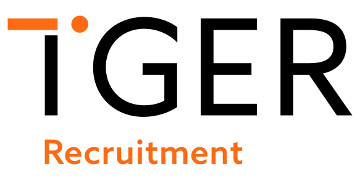According to researchers for the HR solutions platform Deel, 64% of Gen Z employees believe that they don’t receive benefits that are as good as the benefits that their older colleagues receive. The research finding was published yesterday (2 April).
Deel’s researchers also found that globally, in 2024, Gen Z staff received the highest pay increases: their pay increased by 9%, compared with Millennials (whose pay increased by 7%) and Gen X (5%).
In the UK though, Millennial and Gen X workers saw the biggest salary increase within the same time period, with an 8% and 6% increase respectively. UK Gen Zers, typically born in the late 1990s, saw a 5% wage increase.
Employers must implement benefits that resonate with all of their staff, regardless of age, said Thom Groot, CEO of The Electric Car Scheme.
Emphasising tailored support, Groot told HR magazine: “It is really important to have benefits that resonate with everyone, and part of that comes from implementing individual support from benefit providers and HR. This helps companies understand which benefits will resonate best with each employee and therefore each age group.”
Read more: Retail sector cuts employee benefits in half
HR leaders should also communicate the benefits they have available to staff by using resources such as employee benefit portals, Groot added.
He said: “It's critical to engage through various communication methods and not just rely on employees automatically knowing what is available. This includes implementing resources like employee benefits portals but also providing more engaging sessions such as video webinars and one-to-one support for employees from benefits providers. We have also found an interactive calculator a great way to get employees to learn more and engage with the benefits that are on offer.”
Deel's research also found that four in five (81%) would consider working remotely for a company outside of the UK, if it meant greater salary opportunities. More than half (51%) of Gen Z employees currently prioritise fully remote working arrangements when looking for a new role.
Katie Hart, talent acquisition and experience lead at employee benefits provider Perkbox Vivup, explained that traditional benefit models may need updating. Speaking to HR magazine, she said: “Employee demographics are continuously changing and a lot of traditional benefits are becoming outdated, or needed at different points in an employee's careers.
“Childcare benefits, for example, aren't needed often until later in careers. Flexibility, work/life balance, a focus on sustainability, wellbeing and mental health support, etc, are more important to Gen Z.”
Read more: Employees "don't seem interested" in benefits on offer
John Mullally, group risk and healthcare consultant for pensions specialists Cartwright, stated that older employees' experience puts them in a better position to advise employers about the benefits they would like.
He told HR magazine that older workers "may have encountered benefits that are not currently at their existing organisation, and would be more prepared and confident sharing what they would like at their existing employer".
He added: "One employee’s perspective in an organisation may be different to another employee of a different age demographic. This is why every decision on benefits needs to be driven by data, for example insights from employee opinion surveys or exit interviews. This can be sliced and diced across age categories and genders, so organisations can understand what benefits appeal or require tweaking across each demographic."
Deel commissioned the polling organisation Censuswide to survey 1,001 Gen Z workers between 24 February and 26 February 2025.










